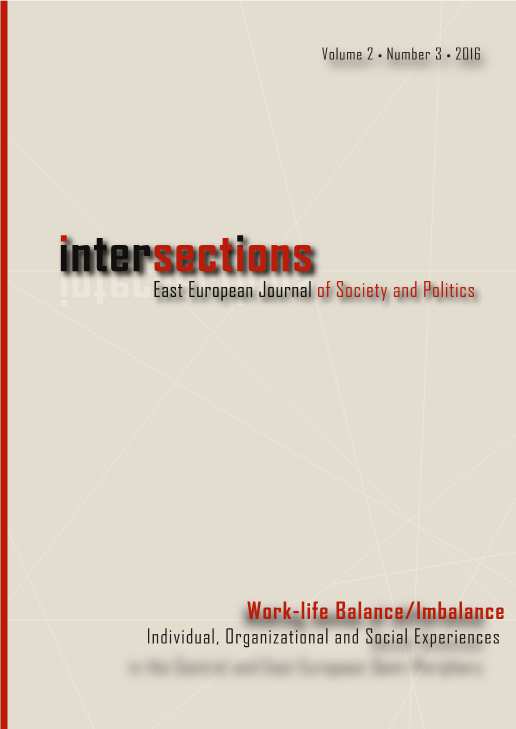Information and Communications Technology’s Impact on Work–life Interference: Cases of ‘Employee-friendly Organizations’
Information and Communications Technology’s Impact on Work–life Interference: Cases of ‘Employee-friendly Organizations’
Author(s): Henriett Primecz, Andrea Toarniczky, Katalin Bácsi, Csaba Kiss, Roland Szilas, Anda Nóra MilassinSubject(s): ICT Information and Communications Technologies, Socio-Economic Research
Published by: MTA Társadalomtudományi Kutatóközpont Kisebbsegkutató Intézet
Keywords: ICT; work–life interference; work-life balance; employee friendliness; family friendliness; work–family interference
Summary/Abstract: In our paper we examine the theoretical and practical impacts of information technology on work and work–life interference. Our paper is based on the results of the ‘Employee Friendly Workplace’ research project conducted in Hungary between 2007 and 2012, in which we explored the practices of ten family-friendly or best workplace prize-winning companies using qualitative research methods (individual interviews and focus groups). The main foci of our study are to explore the different perceptions, expectations and interpretations regarding employees’ work–life balance, how these are related to companies’ employee friendliness, how the employee-friendly practices are transformed by ICT (information and communication technology) . Based on our research, the role of ICT is controversial: 24-hour online availability and the opportunity to work over the Internet with computers and mobile phones from anywhere can evidently support a healthy WLB and provide the possibility of a more flexible work schedule. At the same time, though, these can disturb the balance and invade private lives, creating a kind of ‘modern slavery’. In some cases employees become addicted, and the border between their work and their private life becomes blurred: they are willing to sacrifice their family time or hobby to work day and night, and in some cases this can become an expectation towards employees as well. We reach the final conclusion that technology solves several problems connected with work–family balance and obviously helps employees to find self-fulfilment in their work and family at the same time, while it creates new problems: overwork, obsession with work (and technology itself), mental and physical exhaustion and burnout. At the same time, work social support, independently from ICT, provides the greatest help for employees in need.
Journal: Intersections. East European Journal of Society and Politics
- Issue Year: 2/2016
- Issue No: 3
- Page Range: 61-84
- Page Count: 24
- Language: English

